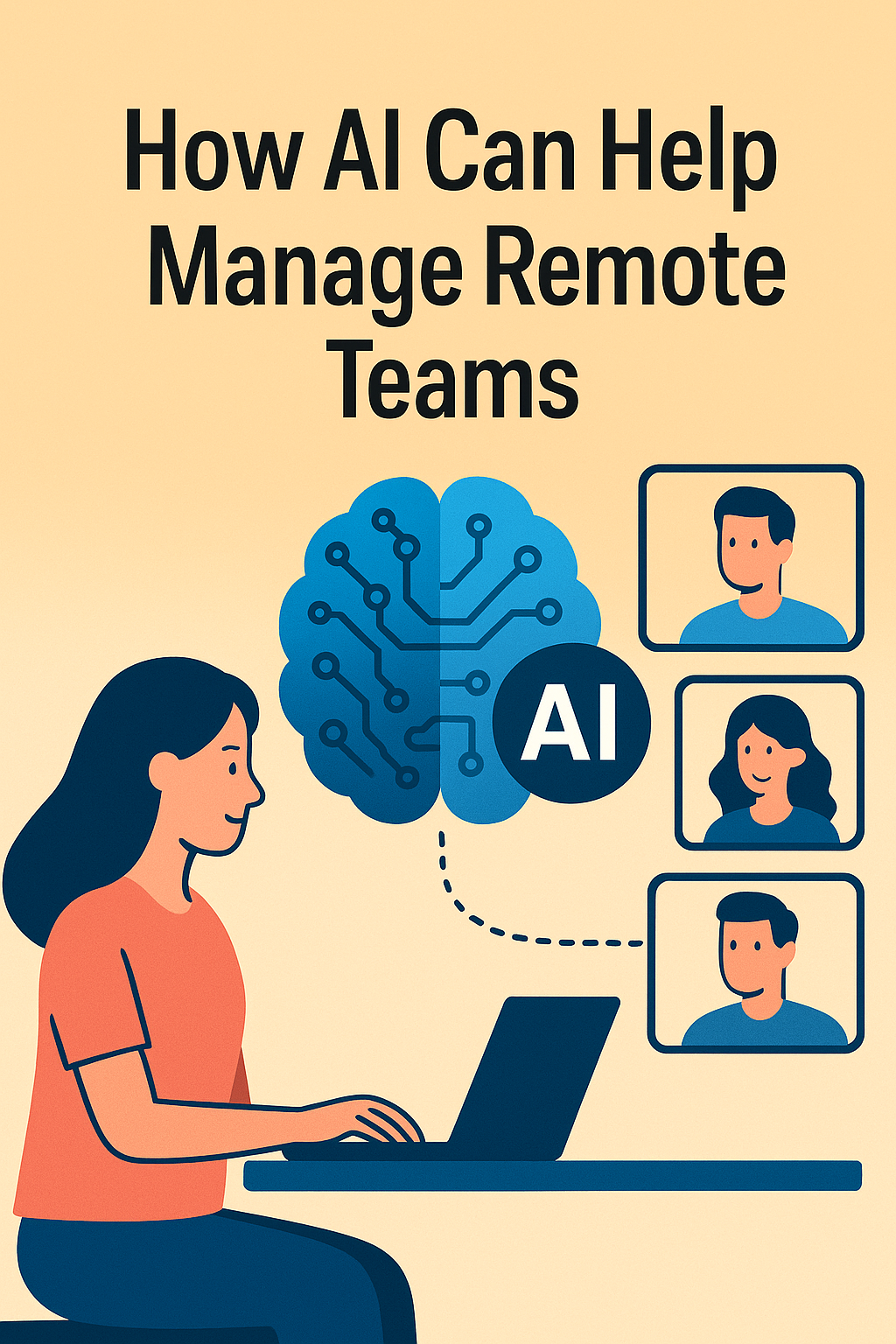The Role of AI in Time Management
Time is one of the most valuable resources we have, yet managing it effectively remains a struggle for many people. From endless meetings to constant notifications, modern life can make it hard to focus on what truly matters. Fortunately, Artificial Intelligence (AI) is transforming how we approach time management.
By automating tasks, prioritizing responsibilities, and creating personalized schedules, AI tools help individuals and teams maximize productivity while reducing stress.
In this article, we’ll explore how AI plays a vital role in effective time management.
Why Time Management Is a Challenge
The average person deals with multiple distractions every day. Some of the biggest time-wasters include:
- Constantly checking emails and messages.
- Multitasking instead of focusing on priorities.
- Poorly structured meetings.
- Lack of clarity on what to do next.
Traditional time management methods—like planners or manual scheduling—often fall short in today’s fast-paced environment. This is where AI offers an advantage.
1. Intelligent Scheduling
AI scheduling assistants like Clockwise or Motion use algorithms to arrange meetings and tasks efficiently.
Benefits include:
- Avoiding overlapping appointments.
- Blocking focus time automatically.
- Adjusting schedules in real time when changes occur.
This ensures that important work gets the attention it deserves.
2. Prioritizing the Right Tasks
Not every task is equally important. AI tools can analyze:
- Deadlines.
- Workload.
- Historical behavior patterns.
Then, they recommend which tasks to complete first. This reduces procrastination and ensures that urgent and impactful work gets done.
3. Automating Repetitive Work
Repetitive tasks eat up valuable hours. AI can automate processes such as:
- Sorting and responding to routine emails.
- Updating calendars.
- Generating reports.
By removing these small distractions, you free up time for high-value activities.
4. Reducing Meeting Fatigue
AI can help you manage meeting time better by:
- Suggesting optimal meeting lengths.
- Summarizing discussions with AI note-takers.
- Identifying when meetings could be replaced by quick updates.
This avoids wasting time in unnecessary or overly long sessions.
5. Managing Focus and Energy
AI-powered apps like RescueTime track how you spend time on digital devices. They can detect when you’re losing focus and recommend breaks or block distractions like social media.
By aligning tasks with your energy levels, AI ensures you use your most productive hours effectively.
6. Personalized Reminders and Nudges
Instead of generic alarms, AI sends reminders tailored to your habits. For example:
- Nudging you to complete a task at a time when you usually have high focus.
- Reminding you to take breaks before fatigue sets in.
- Suggesting small steps toward completing larger projects.
These personalized nudges help build consistency and discipline.
7. Data-Driven Time Insights
AI tools collect data on how you spend time and present clear insights. For example:
- “You spent 6 hours last week on email—20% more than usual.”
- “Your most productive work happens between 9 a.m. and 11 a.m.”
With this feedback, you can adjust habits and make smarter decisions.
8. Integrating Work and Life Balance
AI assistants don’t just schedule work—they also consider personal commitments. They can:
- Block time for family or exercise.
- Suggest downtime after a heavy workload.
- Prevent burnout by balancing professional and personal goals.
9. Real-Time Adaptability
Life is unpredictable, but AI tools adapt quickly. If a meeting runs late, the AI can:
- Reschedule low-priority tasks automatically.
- Update team members instantly.
- Ensure deadlines are still met without chaos.
This flexibility reduces stress when plans change unexpectedly.
10. The Future of AI and Time Management
As AI continues to evolve, we can expect even smarter solutions. Future tools may:
- Predict productivity levels based on health data.
- Suggest lifestyle adjustments to improve efficiency.
- Provide more advanced virtual assistants that handle complex planning.
AI’s role will only grow as time becomes an increasingly valuable resource.
Final Thoughts
Time management is about more than just fitting tasks into a calendar—it’s about making each hour count. With AI, managing time becomes less of a daily struggle and more of a strategic advantage.
By using AI tools to automate tasks, prioritize work, and adapt to changes, you can reclaim lost hours, reduce stress, and focus on what matters most.
The result is not just better productivity, but a more balanced and fulfilling life.




Post Comment